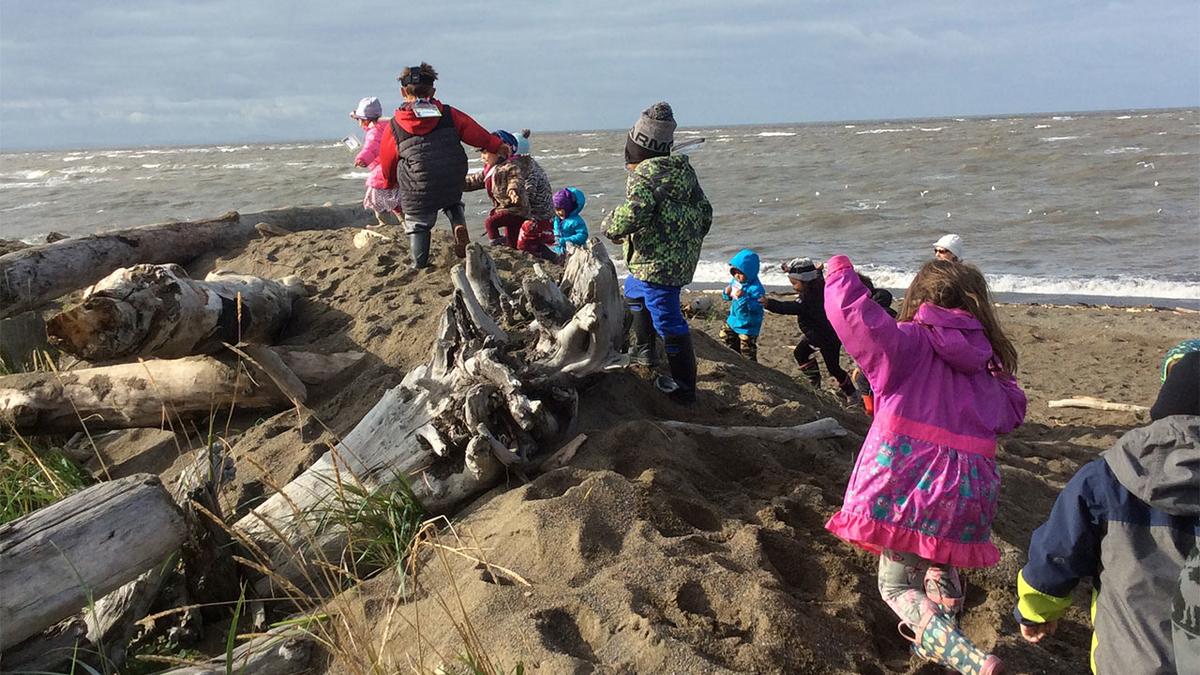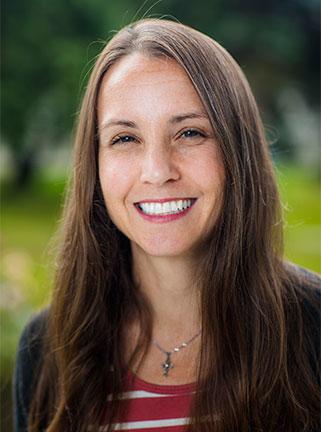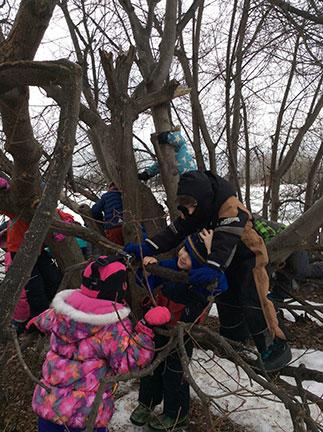Carie Green believes we can learn a lot from children. She encourages educators to listen carefully to their perspectives.
Green is an associate professor at the University of Alaska Fairbanks. This year, she’s also a visiting faculty member in the UMD Department of Applied Human Sciences. Her research focuses on understanding how young children form their sense of self in relation to the environment.
Years later, after studying environmental education, Green noticed a gap in the literature regarding children’s “special places.” She had a sense that children’s early interactions with the natural world factored into identity development. But there wasn’t much research on this topic.
Since then, Green has devoted herself to understanding how children’s emotional and behavioral development is tied to their environmental identity and sense of place. She wrote a dissertation on the subject and subsequently received a CAREER grant from the National Science Foundation to further facilitate this exploration.
Participatory Research
Green is in the midst of a longitudinal study that compares Alaskan children who live in cities to those from rural villages in Southeast and Northwest Alaska. Many Alaska Native children grow up in an environment where they are outside much of the time and are intricately tied to their environment, so there is a cultural aspect to this work.
“A lot of times in studying Indigenous populations, people focus their research on deficiencies. This research tries to take the opposite angle,” she says, noting that she wants to empower reciprocal learning rather than a colonized approach of teaching from the top down. “What can we learn about the livelihoods of Indigenous children? What wisdom does that bring to the rest of the world?”
Green’s study uses participatory research methods. It examines children’s drawings and creative output. It immerses children in natural settings while equipping them with GoPro cameras to record their unique perspectives.
Already, the research has indicated some interesting differences between children. Green gives an example of a four-year-old city resident who is consistently expressing discomfort and anxiety while in nature. He asks to leave and doesn’t want to engage or explore. In contrast, another four-year-old participant from a rural village seems to find comfort in natural settings. The child confidently spots and identifies a moose in the distance, pointing it out before the adults see it.
Such micro-interactions in nature help shape how children come to see themselves and their relationship to the world around them, according to Green. She suggests that support from adults can help children overcome fear and anxiety to build curiosity and confidence.
“Trust is at the heart of healthy environmental identity development,” says Green. She points to another example of a child who expressed frustration while trying to climb a tree. When encouraged by teachers to try again, the child persists, finding some success and gaining confidence.
In addition to developing confidence, Green’s hope is that when children are nurtured in this way, they will develop environmental competency. She references an interaction where a child notices a bee drowning in water. The child decides to intervene and works with a sibling to gently lift the bee to safety. This respect for living things—and the agency to act to protect them—is the type of outcome Green wants to encourage.
Green will be teaching a course on place-based education this spring that emphasizes the Environmental Identity Development model she developed. While at UMD, she’s also looking forward to collaborating with Professor Julie Ernst, who has related expertise in the field of nature-based education.
“I’m really excited to be here at UMD,” says Green. “It’s an ideal situation to really share this work and continue to build and strengthen it.”
Carie Green will give a talk on Place Consciousness in Education on Friday, November 20 from noon-1 p.m.
Learn more about UMD's Department of Applied Human Sciences.


